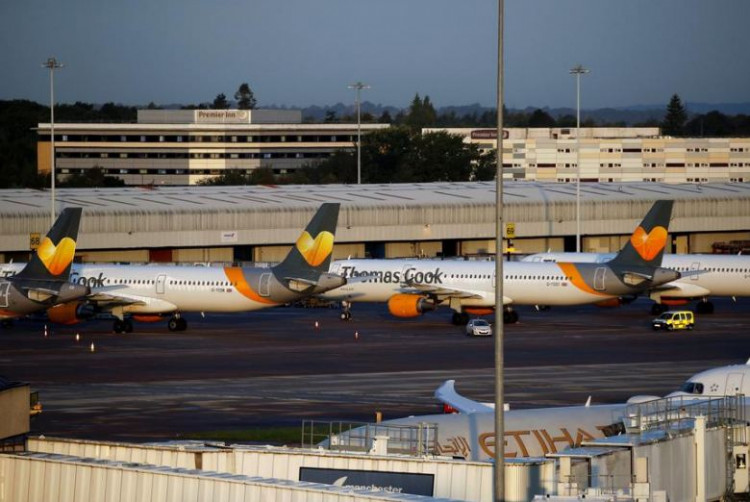Chinese international conglomerate and investment company Fosun International Ltd was on the verge of rescuing failing Thomas Cook Group plc, once described as the "mightiest brand in travel," when the deal collapsed after banks demanded more cash.
Thomas Cook had secured a $1.12 billion (£900 million) rescue deal from a group of companies led by Fosun, its largest shareholder, in August. A recent and unexpected demand from its lending banks to raise a further $250 billion in contingency funding threatened to scupper the deal, which it finally did on Sunday. The Fosun group was unable to do provide the cash.
In a statement, Fosun said it was "disappointed" at the news of the collapse. It owned 5.76% of Thomas Cook Group via Portuguese insurance company subsidiary, Fidelidade Mundial.
"Fosun confirms that its position remained unchanged throughout the process, but unfortunately other factors have changed," said Fosun. "We extend our deepest sympathy to all those affected by this outcome."
The fate of Thomas Cook China and its employees remain in doubt following the collapse of the parent firm.
Executives of Thomas Cook had spent Sunday in talks with lenders trying to secure the additional funding and salvage the deal. Their efforts failed.
The 178 year-old British travel company had also asked the British government for financial aid, but Foreign Secretary Dominic Raab on Sunday said the government doesn't "systematically step in" when businesses went under unless there was "a good strategic national interest."
Thomas Cook Group fell into bankruptcy on Sept. 23, ceasing operations immediately and leaving 600,000 travelers stranded at their holiday destinations. The British Civil Aviation Authority is leading a rescue operation to ensure the safe return of more than 150,000 stranded British citizens in the country's biggest peacetime repatriation.
Thomas Cook blamed a horde of issues for its problems. These included political unrest in holiday destinations such as Turkey, the prolonged heatwave of 2018 that drastically cut downon tourism and customers delaying booking holidays because of Brexit.
Analysts, however, noted Thomas Cook also faced fierce competition from online travel agents and low-cost or budget airlines. Many holidaymakers are putting together their own holidays and not using travel agents such as Thomas Cook.
Travel expert Simon Calder asserts Thomas Cook "wasn't ready for the 21st Century."
"It was using a model that was great for the second half of the 20th Century where people would obediently go into their local travel agency and book a package holiday," said Calder.
"Now everybody can pretend they are a travel agent. They've got access to all the airline seats, hotel beds, car rentals in the world and they can put things together themselves. Thomas Cook simply wasn't differentiating enough."
Business Secretary Andrea Leadsom said she will write to the Insolvency Service urging them to "fast-track" their investigation into the circumstances surrounding Thomas Cook falling into liquidation. The Department for Transport said the investigation will also look into the conduct of the company's board of directors.





